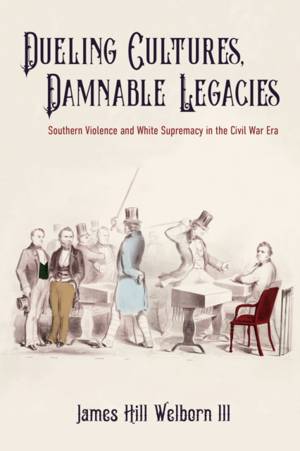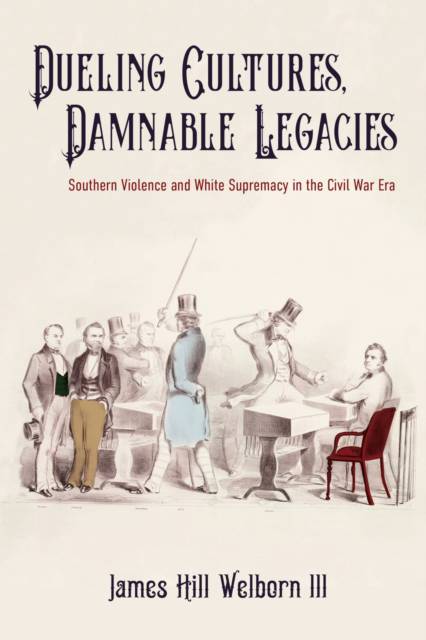
- Retrait gratuit dans votre magasin Club
- 7.000.000 titres dans notre catalogue
- Payer en toute sécurité
- Toujours un magasin près de chez vous
- Retrait gratuit dans votre magasin Club
- 7.000.000 titres dans notre catalogue
- Payer en toute sécurité
- Toujours un magasin près de chez vous
Dueling Cultures, Damnable Legacies
Southern Violence and White Supremacy in the Civil War Era
James Hill WelbornDescription
How did white Southerners in the nineteenth century reconcile a Christian faith that instructed them to turn the other cheek with a pervasive code of honor that instructed them to do just the opposite--to demand satisfaction for perceived insults? In Edgefield, South Carolina, in the 1830s, white Southerners combined these seemingly antithetical ideals to forge a new compound: a wrathful moral ethic of righteous honor. Dueling Cultures, Damnable Legacies investigates the formation and proliferation of this white supremacist ideology that merged masculine bellicosity with religious devotion.
In 1856, when Edgefield native Preston Smith Brooks viciously beat the abolitionist Charles Sumner on the Senate floor, the ideology of righteous honor reached its apogee and took national center stage. Welborn analyzes the birth of this peculiar moral ethic in Edgefield and traces its increasing dominance across the American South in the buildup to the Civil War, as white Southerners sought to cloak a war fought in defense of slavery in the language of honor and Christian piety.
Spécifications
Parties prenantes
- Auteur(s) :
- Editeur:
Contenu
- Nombre de pages :
- 284
- Langue:
- Anglais
- Collection :
Caractéristiques
- EAN:
- 9780813949321
- Date de parution :
- 23-06-23
- Format:
- Livre broché
- Format numérique:
- Trade paperback (VS)
- Dimensions :
- 152 mm x 229 mm
- Poids :
- 421 g







